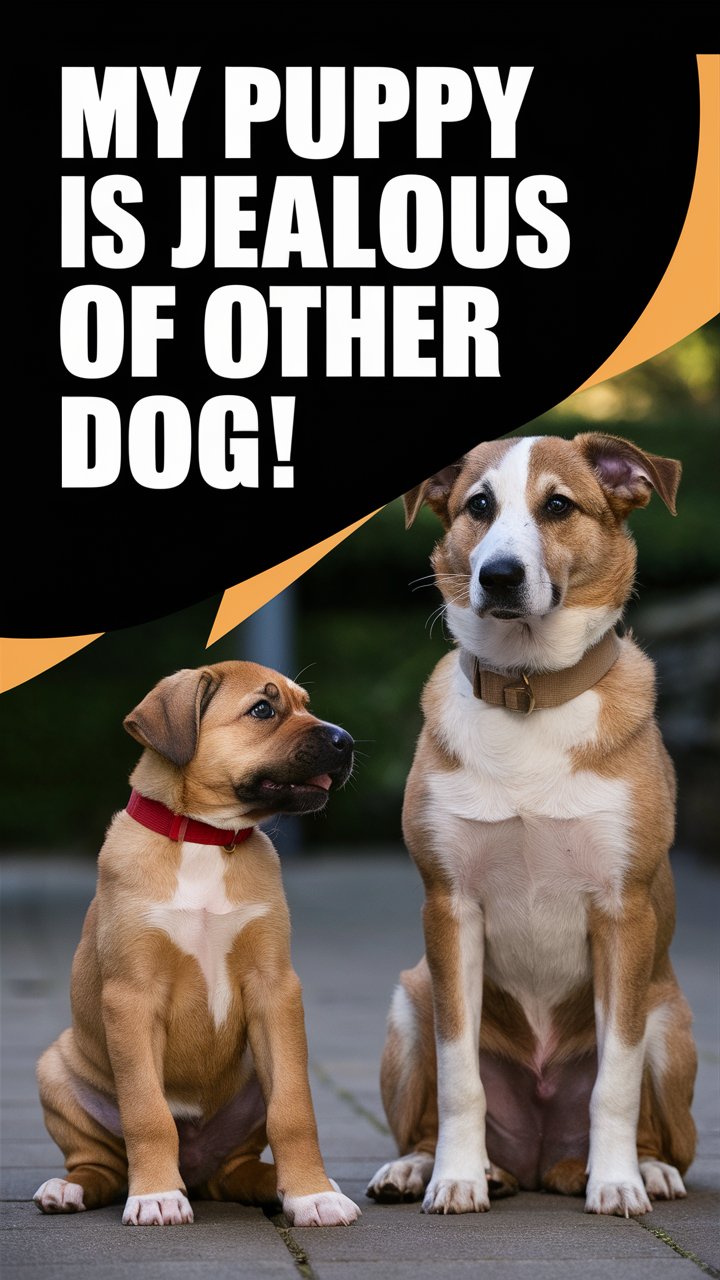Dogs aren’t just our loyal companions—they’re emotional beings who experience a wide range of feelings. If you’ve ever noticed your pup sulking when you pet another dog or giving you side-eyes when a new baby arrives at home, you’ve probably wondered: Can dogs really get jealous?
The short answer is: Yes, dogs can show signs of jealousy. But understanding the why and how is key to preventing negative behavior and building a healthier bond with your furry friend.
In this article, we’ll dive deep into the science of canine jealousy, the signs to look for, and expert-approved strategies to manage it. 🐶💚
What Science Says About Dog Jealousy
For years, scientists debated whether dogs experience jealousy the way humans do, or if their reactions were simply resource guarding.
🔬 A groundbreaking 2014 study by UC San Diego revealed that dogs do indeed display jealous behaviors—especially when their owners show affection toward another dog (even a stuffed toy dog used in experiments).
Key findings included:
- Dogs tried to push between their owners and the “rival.”
- Many barked, pawed, or whined to redirect attention.
- Some showed mild aggression when they felt excluded.
So yes—your dog’s “drama” isn’t just in your head. It’s science-backed!
Signs of Jealousy in Dogs
Dogs express jealousy differently depending on their personality, past experiences, and triggers. Here are the most common signs:
1. Attention-Seeking Behavior
- Pawing at you while you pet another pet.
- Jumping onto your lap unexpectedly.
- Barking or whining when ignored.
2. Resource Guarding
- Growling or standing over toys, food, or even you.
- Blocking other pets from approaching you.
3. Changes in Body Language
- Pinned ears, tense body, low tail.
- Staring at the “rival” with intensity.
- Subtle huffing, sighing, or even turning away in protest.
4. Negative Behaviors
- Accidents indoors despite being potty-trained.
- Destructive chewing of furniture or shoes.
- Aggression toward other pets or humans.
👉 If these behaviors sound familiar, it may be jealousy—not just “bad manners.”
Why Do Dogs Get Jealous?
Dogs are pack animals, and their social instincts play a big role in jealousy. Let’s break it down:
1. Insecurity and Fear of Losing You
Dogs form deep bonds with their humans. When they see you giving love elsewhere, they might feel insecure—like a child worried about losing a parent’s attention.
2. Pack Mentality
In a dog’s mind, your household is their “pack.” If they feel another pet is threatening their position, jealousy kicks in as a survival mechanism.
3. Past Experiences
Rescue dogs or those who faced neglect may be more prone to jealousy. They’ve learned that attention and resources aren’t guaranteed.
4. Triggers
- New baby at home 👶
- New pet introduction 🐾
- Guest or new partner 💑
- Divided attention during training sessions
The Dangers of Ignoring Jealousy
Brushing off jealousy as “cute” can backfire. Left unchecked, it may lead to:
- Aggression (biting, snapping at other pets/people).
- Anxiety & stress (constant whining, pacing).
- Behavioral issues (chewing, accidents indoors).
- Weakened bond between you and your dog.
How to Handle Dog Jealousy (Step-by-Step Guide)
The good news: With consistency and patience, jealousy can be managed effectively. Here’s how:
1. Give Equal Attention
- Spend one-on-one time with each pet.
- Rotate playtime, walks, and cuddle sessions.
2. Positive Reinforcement
- Reward calm behavior when another pet or person is around.
- Treats, praise, and affection teach your dog that sharing you is a good thing.
3. Desensitization & Counter-Conditioning
- Slowly introduce your dog to jealousy triggers.
- Example: Pet another dog while rewarding your pup for staying calm.
4. Impulse Control Training
- Teach “wait,” “leave it,” and “stay” commands.
- Play games like red light/green light with treats to build patience.
5. Body Language Management
- Stay calm; don’t scold aggressively.
- Avoid rewarding jealousy-driven actions (like barking for attention).
6. Consult Professionals
If jealousy leads to aggression or anxiety, seek help from:
- Certified dog trainers.
- Veterinary behaviorists.
Prevention: Raising a Well-Adjusted Dog
Preventing jealousy is easier than correcting it. Here are long-term strategies:
- Socialize early: Introduce puppies to different people, pets, and environments.
- Build confidence: Use enrichment activities and brain games.
- Set routines: Dogs thrive on predictability—it reduces stress.
- Safe zones: Give your dog a space to retreat when overwhelmed.
Real-Life Case Study
🐾 Bella, a 3-year-old Labrador, started growling at her owner’s newborn baby. Instead of punishment, her owners used gradual exposure: rewarding Bella for calm behavior near the baby, maintaining her walk schedule, and involving her in family routines. Within weeks, Bella became the baby’s gentle protector instead of a jealous rival.
FAQs: Can Dogs Get Jealous?
Q1: Can dogs get jealous of babies?
Yes! Dogs may feel replaced when a baby arrives. Use positive reinforcement and include your dog in daily routines to reduce jealousy.
Q2: Can dogs get jealous of other dogs or cats?
Absolutely. Introducing pets gradually and rewarding calm interactions helps.
Q3: Do dogs get jealous of humans (like partners)?
Yes—sometimes dogs compete with partners for your attention. Balance affection to avoid rivalry.
Final Thoughts
So, can dogs get jealous? The answer is a big YES—but it’s not a hopeless situation. By recognizing the signs early, understanding the root causes, and applying positive training techniques, you can transform jealousy into harmony.
Remember: jealousy isn’t your dog being “bad.” It’s simply their way of saying, “I love you so much, and I don’t want to lose you.” 💕
With patience, consistency, and love, you’ll not only manage jealousy but also deepen your bond with your four-legged best friend.
